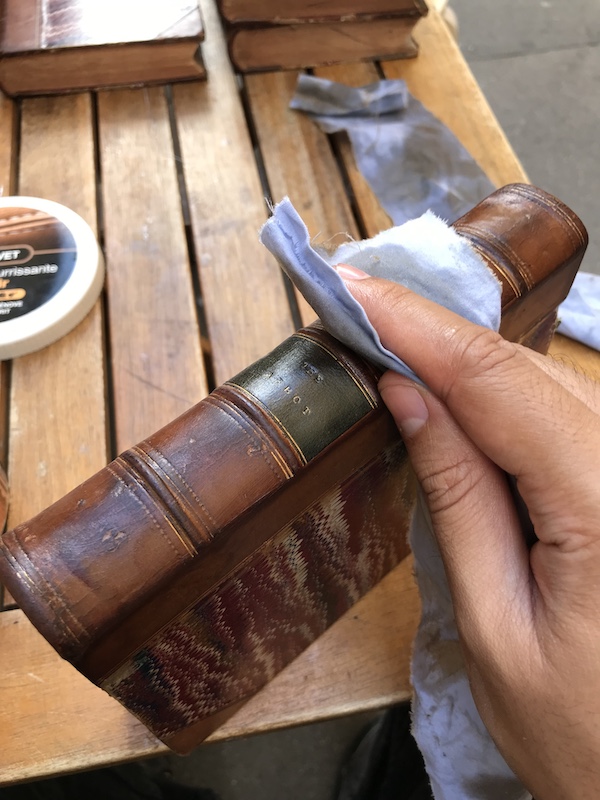
I’ve thought about the rare books component of our program and its pairing with the digital humanities. My first internship took place in an Anglophone bookshop. This choice probably hinted at a quiet disenchantment with regard to our digitally dominated modern lives, or at least an uneasy acceptance of it, since I spent most of my time there shelving, sorting, and cleaning books. I was most intrigued by our classes in book description, which were steeped in experiential learning — visual, tactile, and olfactory engagement. We were taught to distinguish different kinds of binding, identify design patterns, and recognize forms of damage and decay. We came to know the reasons for a given book’s creation and the context in which it was produced. Each had a unique identity. From such direct contact with books, a historical sensibility easily became manifest.
In accordance with my analog tendencies, this did not seem truly possible for any digital derivative — hermetically sealed by lines of code. I’d felt that all of the illuminated manuscripts, letters, and marginalia we’d encountered became detached from their material origins in the process of being converted into dimensionless data. If such objects are received as mere pixels on a screen, perhaps the labor that makes this possible is much less appreciated, too. I worked in digitization prior to starting the master; I was responsible for generating the raw images that would eventually become the finished products of a digital library. Indeed, I felt detached from the seemingly complex ways in which ink and paper achieved binary ascendancy. There was no need for Python or TEI, for I operated a simple pulley system in synchrony with the sounds of camera shutters.
As I began to understand the richness of the DH toolkit, my analog tendencies fell away. I was taken aback by one DH project whose origin story was that an inexplicable fire had claimed hundreds of precious items. This project provided me with a key piece in my own genealogical research, pertinent to my developing thesis: a magazine article that described an unsung hero clandestinely involved in signals intelligence, all in an effort to break the back of a nascent military occupation, written by their friend. It was improperly catalogued, which made it more difficult to discover, yet more rewarding to have found. I perceive the details of the scanned copy and the source code now with the same vibrancy as a rare book, errors and all. I was able to engage with the past by means of some obscure bytes of data and sense something real and profound.
For me, DH simply means the possibility of knowledge.


